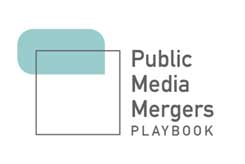 With the spread of COVID-19, many public media outlets are quickly becoming “distributed” organizations – with employees working remotely from home or other places outside of the office.
With the spread of COVID-19, many public media outlets are quickly becoming “distributed” organizations – with employees working remotely from home or other places outside of the office.
This is nothing new to us: Public Media Company has been working in this manner throughout our 19 year history. Since we work with local media around the country, we don’t locate everyone in a single office. We have a home base in Boulder, Colorado, but most of our employees work at their homes or in shared offices when not traveling for work. We feel like we have some of the kinks worked out – issues that public media stations may have just started to grapple with – so here’s our advice after many years of refining our practices.
The key to success is for the organization and employees to embrace tools and systems and to make cultural changes so that “working from home” (WFH) becomes the standard operating procedure for as much of your workforce as possible.
WFH Advice for Station Leaders:
If you have not done so already, avail your organization of the many tools and systems that are on the market. At Public Media Company we use several remote working tools that aid us in our virtual work environment. These tools allow us to work in a cloud-based environment across multiple time-zones. The ones we use are listed below, but there are many similar products on the market. Always check TechSoup https://www.techsoup.org/ or directly with the software provider to find out if non-profit pricing is available.
PMC Tools:
- Toggl (time tracking): https://toggl.com/
- Expensify (expense management): https://www.expensify.com/
- Slack (real-time communication): https://slack.com/
- Uber Conference (conference calls, both for voice and screen-sharing): https://www.uberconference.com/
- GoToMeeting (conference calls, both for voice and screen-sharing): https://global.gotomeeting.com/
- Salesforce and SmartCloud Connect (CRM): https://www.salesforce.com/ and https://smartcloudconnect.io/
- QuickBooks (cloud accounting): https://quickbooks.intuit.com/
- Office 365 – OneDrive or SharePoint (file sharing): https://onedrive.live.com/
- Outlook (email and calendar) https://outlook.live.com/
Once Tools are in place:
- Offer clear guidance, training and How To’s
- Ask all teams to share work schedules and institute time tracking
- Mandate the use of team communication tools (e.g. email, Slack)
- Buy subscriptions to additional tools (like conference lines) when necessary
Other Considerations:
- Can financial processes (invoicing, bill processing, expense reimbursements, etc.) be transitioned to an electronic system?
- What about standardized virus and online threat protections – do you have protections in place that will cover employees working remotely?
And most importantly – we are going through a time when many workers are being asked to work from home but may also have responsibilities to care for family members. It’s important that the station embraces tools to ensure your employees have the flexibility to work on a schedule that balances work needs with elder/childcare or other obligations.
WFH Advice for the Employee:
It’s not always easy to work from home, despite the appeal of not commuting and gaining some privacy and flexibility. At Public Media Company, we work across many U.S. time zones (and even around the world) so we’ve adapted to the difficulties of working remotely by instituting the uniform use of certain tools and communication practices to support us getting our work done.
Maintaining a consistent day-to-day work schedule is key, where employees are reachable via Slack or email. That way, your team can rely on each other to get the work done. For companies across multiple time zones, the hours between 10 a.m.- 3 p.m. are most critical.
- Ensure that your wifi is working great, and upgrade if necessary; make sure you have a quiet space to work from and all your online tools are readily accessible.
- Establish a schedule that your colleagues can depend on
- Document your hours worked
- Embrace technology and standard company practices for working remotely (e.g. sharing files on a server)
- Communicate frequently, using multiple tools
The stress of the coronavirus and the impact on family life is enormous, and leaders in public media should use this time to have an open dialog about how stations can support employees who are keeping our audiences informed and entertained throughout the day. Public media is more important than ever before, and it’s imperative that stations approach this new reality with calm, perseverance and a commitment to serving one another at a time when our best work is truly needed.
By Alison Scholly, Managing Director, Public Media Company



